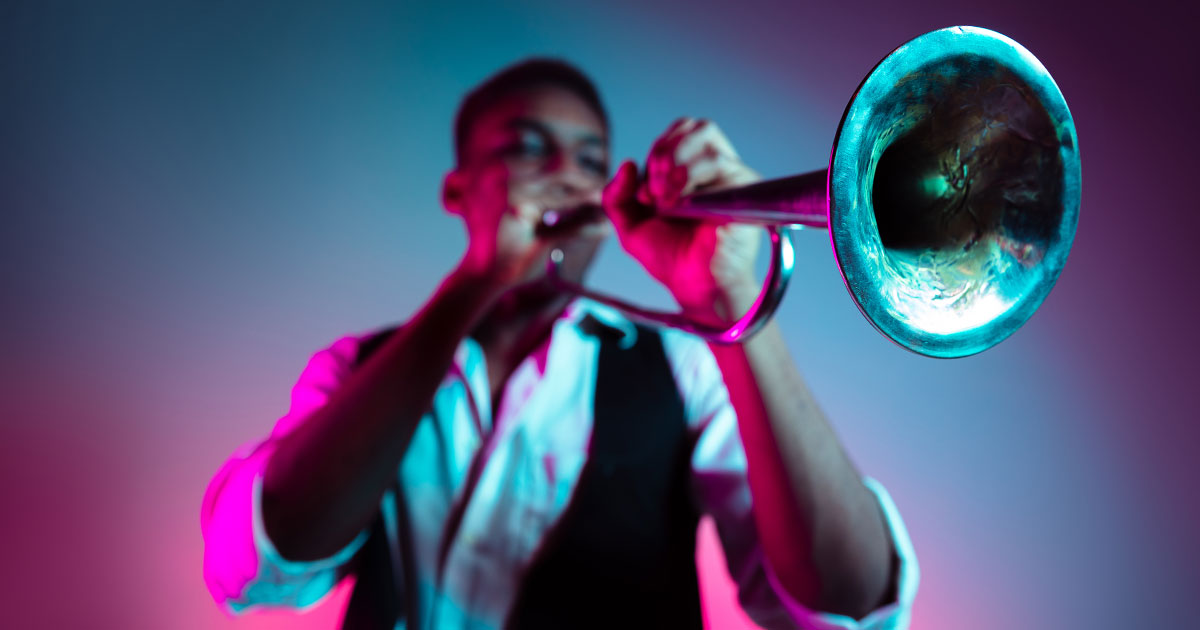
April 6, 2022 – Music law is a collection of laws and business practices necessary to protect artists and individuals involved in the creation and production of music, in any form it takes.1
Anyone who seeks a career in the entertainment industry must learn how to protect and manage the rights to their creative work. This article provides music law resources for legal professional, educators, and anyone interested a career in the performing arts.
U.S. Code: Copyright and Trademark Law
Every resource on music law begins with federal copyright law and trademark rights for performing artists and their works, so I will begin by listing links to these resources.
 Genevieve Zook is the reference & instructional services librarian at the U.W. Law Library. She is currently chair of the Public Relations Committee and past president of the
Law Librarians Association of Wisconsin, a chapter of the American Association of Law Libraries.
Genevieve Zook is the reference & instructional services librarian at the U.W. Law Library. She is currently chair of the Public Relations Committee and past president of the
Law Librarians Association of Wisconsin, a chapter of the American Association of Law Libraries.
Copyright laws (17 U.S.C. §§ 101-1332) protect music, lyrics, and the sound recordings of artists. In addition, and perhaps not as well known, copyright law protects visual arts, packaging, advertising, and promotional material connected to the creative work.
Trademark laws (15 U.S.C. §§ 1051-1141n) protect logos, merchandising, licensing, and packaging, and can include color, sound, and scent.2
Federal Laws that Amend the Copyright Act
For more on current copyright laws, check out the U.S. Copyright Office circular:
The Copyright Act of the United States and Related Laws Contained in Title 17 of the United States Code.
Federal Agency Resources
The
U.S. Copyright Office website contains too many resources to list, but one resource stands out if you are unfamiliar with copyright:What Musicians Should Know About Copyright.
The
U.S. Department of Justice Antitrust Division enforces federal antitrust laws, and the
U.S. Department of Justice IP Task Force has a multilevel strategy between state, federal, and international partners to combat IP crimes.
Department of Justice resources on music law and copyright:
Tutorials and Instructional Resources on Copyright Law
Here are some tutorials on copyright law from government offices and academic sites. These include instructions on how to file for copyright with the U.S. Copyright Office.
Research Guides
For those who need additional research on music law, the special libraries that collect resources on this topic are law libraries and music libraries.
You can find these special libraries at universities and private institutions that support careers in those fields. Academic libraries create copyright guides for students and faculty, and these guides are useful for locating legal resources.
Here are research guides on copyright and music law:
Other academic law library research guides include:
If you cannot find what you are looking for in one of these research guides, a search strategy to locate more research guides is to string together “music law AND libguide” or "music law AND research guide" in Google, for example. (Note that the “AND” needs to be all capital letters.)
Books on Music Law
The U.W.-Madison campus has two libraries where you can find books, periodicals, and material on music law; The Mills Music Library located inside Memorial Library, and the U.W. Law Library.
Here are some books available at these libraries. These books are available for checkout if you fill out an application for a
community borrowing card.
Marquette University Law Library owns a copy of the fifth edition of
Kohn on Music Licensing. The author, Bob Kohn, also
has a website that provides links to music law resources, including books on music law, copyright resources, performing rights organizations, broadcast associations, songwriter organizations, and much more.
Books Available on Legal Databases
There are legal treatises available on entertainment law in Lexis+ and WestlawEdge:
State Bar of Wisconsin PINNACLE Books and Seminars
State Bar of Wisconsin PINNACLE© publishes books and periodically holds CLE sessions that cover topics on intellectual property, copyright, and other related legal topics. These include:
Subscription Databases on Music
Topical databases on the music industry are available at the U.W.-Madison Mills Music Library, and can be accessed from any library on campus.
Music Index – This database provides cover-to-cover indexing and abstracts of classical and modern music.
Musical America – This database is a business source for the performing arts, providing press releases, news, and an online international directory of the performing arts, as well as a directory of cover music and dance performance organizations.
Music Periodical Database – Provides 1.3 million articles dating from 1871 to current, indexing, and abstracts of over 425 international journals.
For more databases on the subject of music,
see the Mills Music Library webpage.
Websites for Public Domain and Royalty-free Music
These three websites offer access to, and discussions about, music that is in the public domain or that is free of copyright and royalties:
Performance Rights Organizations and Dispute Resolution Services
Arts Mediation Group – provides mediation services for individuals in entertainment and the arts.
ASCAP – One of the two largest performing rights organizations in the U.S. ASCAP also has a global reach. This website provides information and resources for performing rights and licensing fees.
BMI – One of the two largest performing rights organizations in the U.S. This website provides information and resources for performing rights and licensing fees.
Lawyers for the Creative Arts – Located in Chicago, this organization offers dispute resolution services. Provides seminars and workshops for artists and other non-lawyers.
JAMS – Entertainment and Sports Dispute Resolution Service.
NACUBO – National Association of College and University Business Officers, provides information on
music copyright.
NARIP – National Association of Recording Industry Professionals, an organization that markets and monetizes music.
RIAA – Recording Industry of America, which represents record labels and protects artists’ creative freedom.
SESAC – A smaller performing rights organization, but still representing many big-name musicians.4
Sound Exchange – A performing rights organization that manages the rights for streaming audio, including satellite radio, internet radio, and more.
Harry Fox Agency – Handles mechanical and digital licenses. From the University of Hartford Research Guide on Music Copyright, “This should be your starting point if you are looking to secure the rights to produce a recording.”5
International IP Organization
The
World Intellectual Property Organizations (WIPO) provides a free legal database,
WIPO Lex. This database includes IP information from across the world.
Miscellaneous Music Law Resources
Listed below are two websites. The first provides a list of case law on the topic of music law and the second link is a legal blog on infringement in music.
Now This (Just for Fun)
Many music libraries now digitize music collections and make them available online, from blues to rock to the classics and pops.
If you would like to browse one of those collections, Cornell University Library digitized a collection on Hip Hop,
Cornell Digital Hip-Hop Collection, while the Library of Congress offers a large
digital collection of performing arts.
Further Resources and Where to Get Help
A librarian can direct you to trusted legal practice materials. Reach out and ask your local law librarian for help with your research, or at these libraries:
Endnotes
1 Thomas R. Leavens,
Music Law For The General Practitioner, American Bar Association Solo, Small Firm and General Practice Division Forum on the Entertainment & Sports Industries (2013).
2Id. at 21. In footnote 62, Leavens cites to a claim protecting a performer’s costume (seeNaked Cowboy v CBS, 844 F. Supp. 2d 510 (S.D.N.Y. 2012).
3 Leavens at 160.
4 See under heading “Licensing Agencies” from the University of Hartford Research Guide, Copyright for Music: Licensing Permissions.
5 Many of the licensing organization and descriptions in this list are from a research guide created by the librarians at the University of Harford called
Copyright for Music: Licensing/Permissions.
